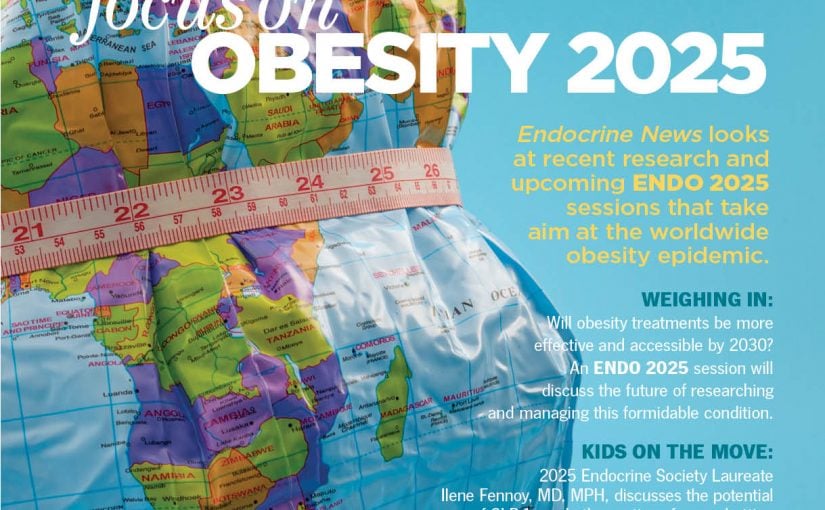Dr. Ilona Lorencz, an endocrine trainee from the University of Pennsylvania, has never worked abroad before. However, her background in health services has long fueled a curiosity about the operations of foreign hospitals and how quality-management principles can be applied in different cultural settings. When offered the chance to accompany her attending, Dr. Susan Mandel, on an exchange to South Africa this April, she did not hesitate to accept.
“I think it will really be fantastic. I really wanted to go when I was a resident but the timing never worked out, and now that I’m a fellow, I think I’ll be able to offer more than I would have before,” Lorencz says.
The opportunity arose as a part of the Ambassador Exchange Program, a pilot project funded by The Endocrine Society. A grant allows one endocrinologist and trainee from the U.S. to spend several weeks working at a hospital in a developing area, and later to host a foreign endocrinologist and trainee back at their home institution.
Foreign destinations were chosen based on the existence of an underserved population and an active coalition of local endocrinologists. Both teams attend clinics and hold lectures in their areas of expertise while abroad. The firstever exchange occurred between the University of Michigan and the King Edward Memorial Hospital in Mumbai, India, earlier this year.
Learning Opportunities
Mandel and Lorencz are heading to the Chris Hani Baragwanath Hospital situated in the Soweto area of Johannesburg, where their hosts, Dr. Roy Shires and trainee Dr. Kershlin Naidu, care for many of the endocrine patients in the region. Th e hospital is the largest in the Southern Hemisphere, but faces many challenges unique to its location, history, and patients.
“Baragwanath caters to an enormous underprivileged population; we are not even sure what the population is. It’s probably somewhere around 2.5 to 3 million people,” says Shires.
At least 40 percent of the population of Johannesburg lives in Soweto—the abbreviated nomenclature for South Western Townships—where rampant poverty coincides with a high incidence rate of diabetes and other conditions.
“We tend to see diseases in quite an advanced stage,” Shires explains.
The Chris Hani Baragwanath Hospital was originally founded as a military hospital during World War II at the request of the British government. After the war, it was decommissioned and converted by the Apartheid government into a hospital for the black population of Soweto. It has since grown from about an 800-bed hospital to about 3,200 beds.
Lorencz intends to learn the methods used at Baragwanath to overcome treatment barriers. “I’m hoping to gain experience of the way that diabetes is treated in South Africa, particularly what ethnic and cultural differences there are in management of diabetes.” She has noticed among the diverse patients she treats in Pennsylvania that each person manages the disease differently, and that the relationship with the provider greatly influences outcomes. “I think it will be extremely instructive to see different ways of practicing, especially among different patient populations, and additionally to see how a limited resources hospital addresses a growing a public health problem.” She hopes to bring such knowledge back to the U.S. to share with her colleagues.
Expertise Sharing
Conversely, Shires anticipates that Mandel and Lorencz will bring much-needed expertise to South Africa. The two American doctors will attend the annual meeting for the Society for Endocrinology, Metabolism, and Diabetes of South Africa (SEMDSA), in addition to offering special workshops on topics such as thyroid ultrasounds and the Plan-Do-Study-Act (PDSA) method for detecting and resolving issues in hospital operations. On other days they will be introduced to some of the rare cases of endocrine disorders at Baragwanath.
In June, Shires will head stateside to complete the other half of the exchange program. He is excited to meet endocrinologists whose work he has followed over the years. He claims that many of “the names that I’ve always read about and the names that I often quote in my talks are at the University of Pennsylvania.” He looks forward to discussions with specialists in topic areas ranging from hypogonadism to pediatric endocrinology.
Although still in the pilot phase, the Ambassador Exchange Program appears to be achieving its goals, which bodes well for the grant’s future. The results of the South Africa and India exchanges may determine whether or not it becomes a permanent fixture. Plans for next year’s program are underway. Those wishing to learn more may contact Elizabeth Kan at [email protected].
—Mapes is a freelance writer in Washington, D.C., and a regular contributor to Endocrine News.

